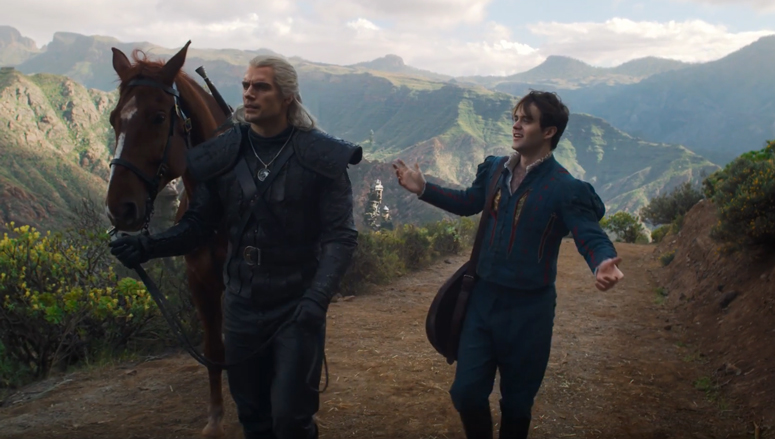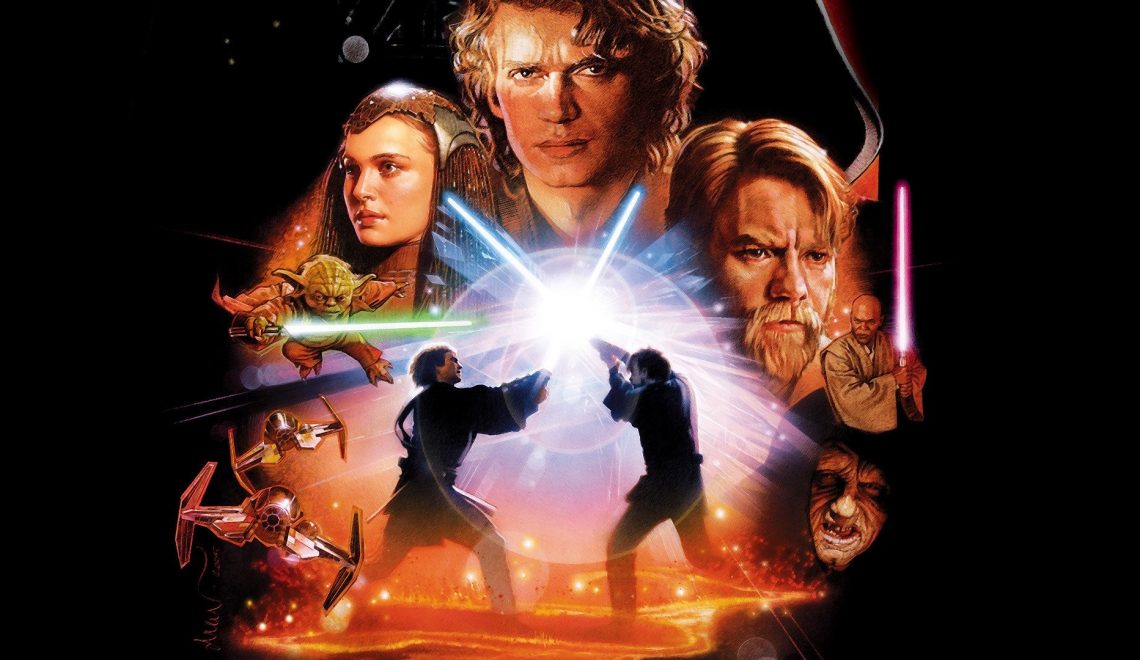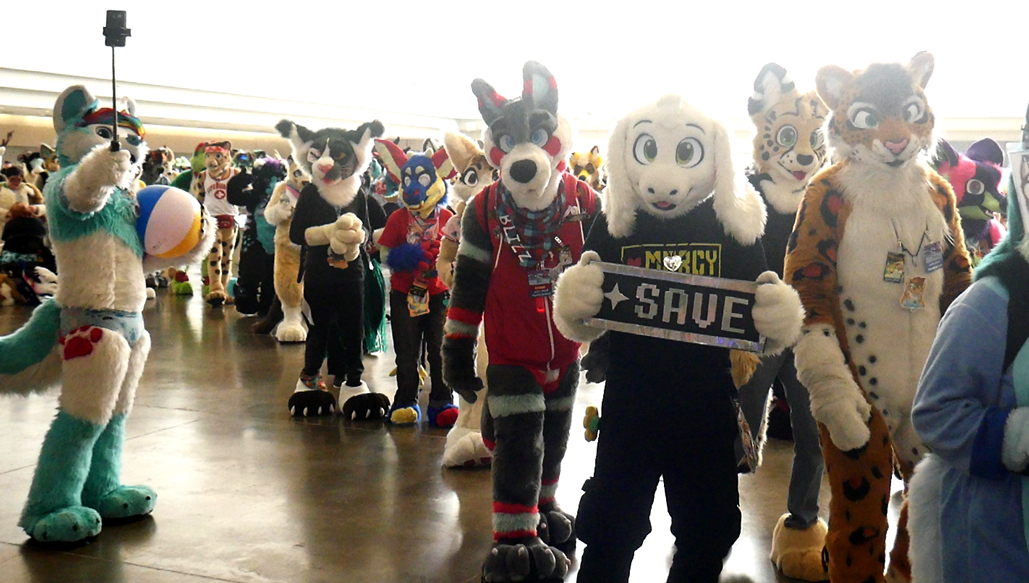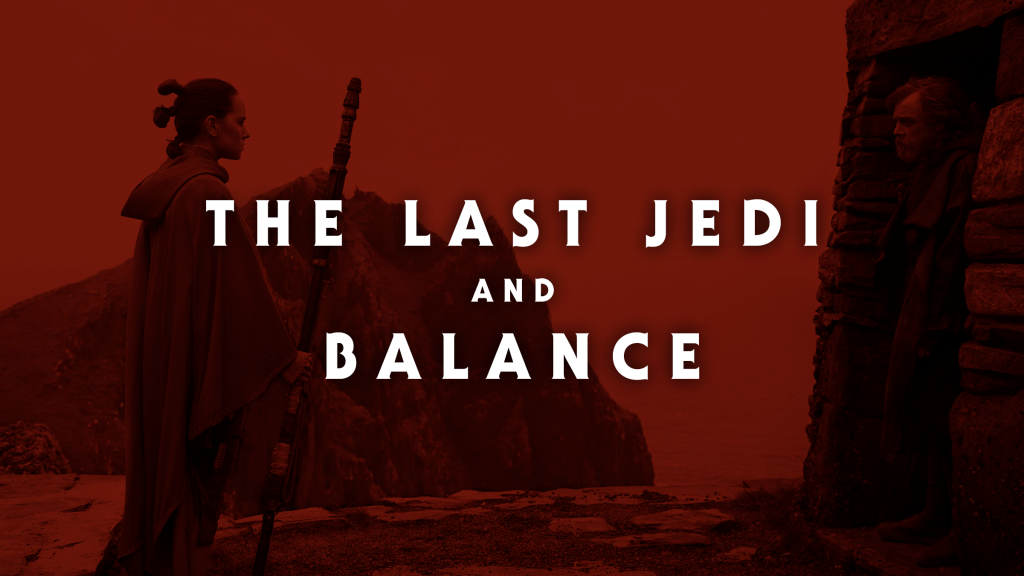
Spoilers for Star Wars: The Last Jedi are thoroughly discussed here. You’ve been warned . . .
Rey doesn’t understand The Force. It’s a grand mystery of the Star Wars universe that surrounds, penetrates, and binds all things and beings together. However, the uninitiated understandably see it as a power to merely control people and lift things. Rey views it as such, and her ignorance is only solidified when she literally reaches out to The Force upon Luke’s instruction. He rolls his eyes and playfully chastises her for it. He softens his tone and gently prompts her to “Breathe. Just . . . breathe. Reach out with your feelings. What do you see?” What follows is one of The Last Jedi’s most memorable scenes that gets to the heart of The Force.
Rey slowly connects with the ancient island on Ahch-To and begins to understand its storied history. It’s one defined by life and death, warmth and cold, peace and violence. The former is what we fight for and treasure, but the latter always follows or precedes this good. As Snoke observed with Rey’s sudden appearance to counteract Kylo Ren’s growing prowess, “Darkness rises, and light to meet it.” Luke understands how The Force naturally brings about this dynamic as well.
“And between it all?” he asks Rey after her observations of the island.
“Balance and energy. A force,” she replies.
“And inside you?”
“Inside me . . . the same force.”
“The Force does not belong to the Jedi,” Luke passionately responds as she connects the dots. “To say that if the Jedi dies, The Force dies, is vanity.”
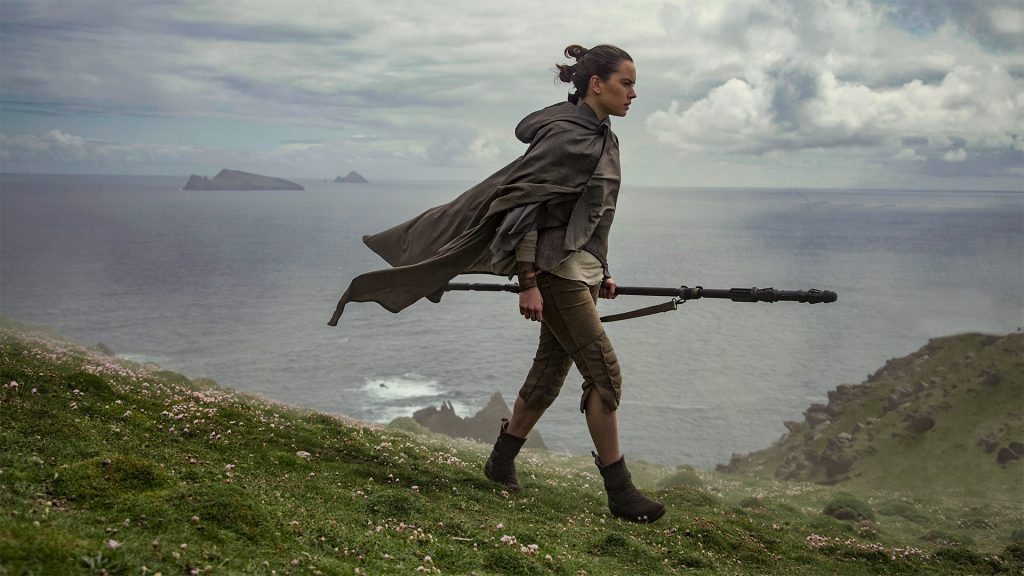
The Jedi ruled the galaxy for over a thousand generations. The Sith secretly rose through Palpatine and Darth Vader to destroy it all. Luke exploited Vader’s conflict to bring the Sith’s rule to a premature end. The likes of Darth Plagueis may think The Force can be controlled, but it exerts a silent sovereignty over the entire galaxy and the fates of every being to preserve the balance of life.
I realized this line isn’t merely directed at Rey. It’s intended to be a challenge to the audience, too. We’re often so shortsighted to discover (let alone internalize) the gray in between the black and white. We make lines in the sand and tote opinions without exposing ourselves to the opposing side. We lack openness and vulnerability: a tried-and-true recipe for callous conflict that solves nothing. The pendulum always swings back and forth, never resting in the center as it often should. We never learn.
As Luke makes clear, the failings of the Light Side are marked by haughty piety and the rejection of emotions and attachments. This means the Dark Side isn’t entirely wrong with its realistic approach toward the human (and alien?) condition by embracing what that entails. However, it takes this approach too far by exclusively abusing others out of self-preservation and exploiting The Force. Revan understood as much in his back-and-forth journey between the Light and Dark Sides. Qui-Gon, Ahsoka, and Luke came to similar conclusions with their internal conflicts over the purpose and failings of the Jedi. Does that mean there should be no Jedi? Of course not. It’s a matter of coming to terms with the balance of The Force within and without one’s self. A proper understanding of a Jedi’s purpose in the galaxy as a guardian of peace and justice begins with a rightful view of what balance is. As Obi-Wan and the whole Jedi Order failed to grasp about the Chosen One prophesy, Anakin did bring balance to The Force by instigating the Great Jedi Purge and killing Darth Sidious.
I bring this up because one of the major points of The Last Jedi is flying over everyone’s heads. A terrible imbalance characterizes the vitriolic debate surrounding the film’s reception. You have critics and half of the average moviegoers praising Rian Johnson’s film as being among the best in the entire saga. On the other hand, you have fans who despise it with an unrivaled disgust, which has even led to a petition with thousands of signatures rallying to smite it from the Star Wars canon. Bit much if you ask me.
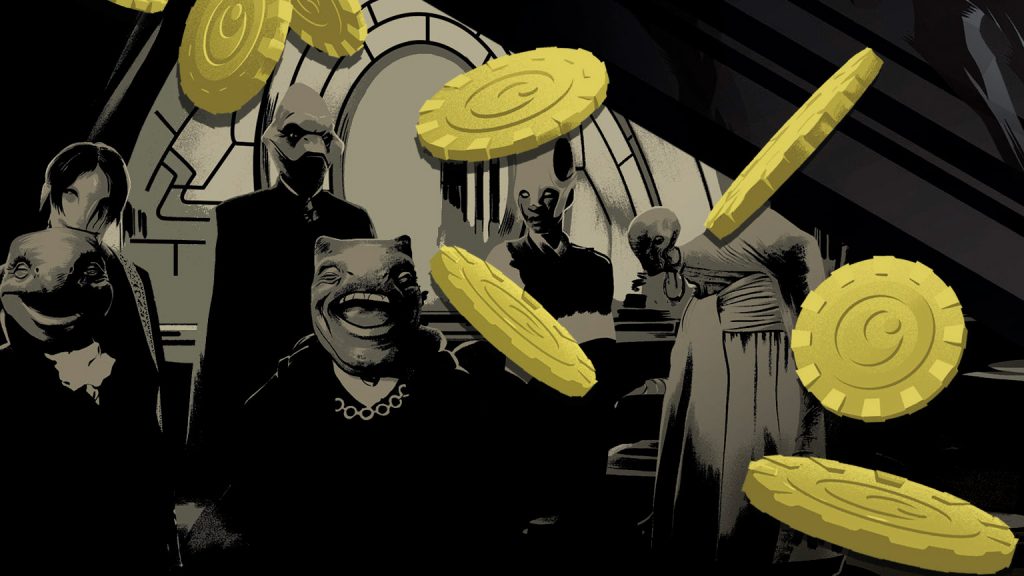
Lucasfilm doesn’t care what you think about The Last Jedi if it’s already made $650 million in its first week. All the executives will be laughing all the way to Canto Bight with coins in hand.
I have friends who walked away from The Last Jedi depressed and angry, pointing out numerous plot holes and scenes that could’ve been handled far more effectively. I know others who are praising its bold, unexpected storytelling and character direction, including some people who are only casual or reluctant fans of the franchise. With diametric positions like these, I’m sure you can imagine how well they’ve been getting along.
Then there’s me. I cannot see how anyone can get over the subplot with Finn and Rose. It’s objectively founded on an egregious plot hole with Holdo’s baffling reasons to withhold her secret plan from Poe, which serves as the catalyst for him getting the Canto Bight mission started. Her continued reticence is more infuriating when Poe stages a mutiny. Anyway, while Rose in herself is an enjoyable character, her place in the story feels forced and comes at the expense of an arguably better subplot with Finn and Poe or more time spent with Snoke, Holdo, or Phasma. All of the scenes with Canto Bight are also dragged out with out-of-place themes of animal cruelty and war profiteering. Need I mention the coincidence of stumbling upon another renown hacker in a random prison cell?
I could go on with some of Luke’s development that veers into questionable territory with uncharacteristic pessimism, which Mark Hamill himself has made clear numerous times that he cannot personally reconcile. I found his final confrontation less emotionally resonant in light of physically being there to fight Kylo face-to-face. Otherwise, I thought the whole point of using Force Projection was so he would remain alive and continue training Rey. There are notable throwaway scenes, other mishandled characters, uneven pacing throughout the middle of the movie, and surprising twists that come off as contrived for the sake of upsetting expectations.
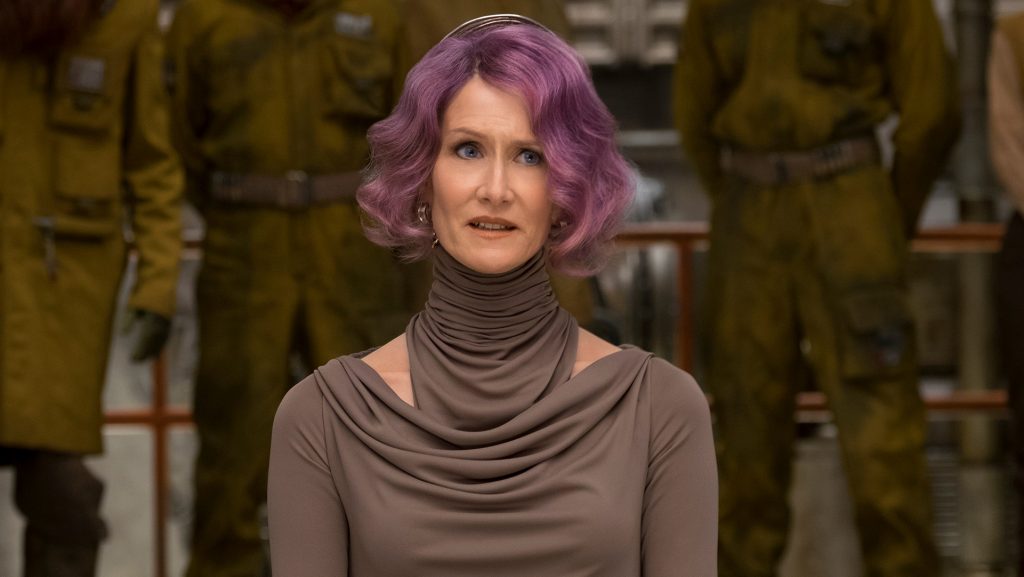
Holdo was set up as as foolish coward, and then we’re supposed to suddenly love her when we realize she’s the reason more of the Resistance was wiped out due to her illogical reasons to keep her and Leia’s escape plan to herself. I think Johnson should’ve committed to her villainous angle or made her intentions clear from the start, even earlier on to build chemistry with Leia during the D’Qar evacuation. After all, she was supposed to have this complicated yet strong relationship with the general due to their differing approaches to leadership. You don’t get that.
However, that doesn’t mean there’s no brilliance throughout the film. As many critics and other viewers have pointed out, the Resistance escape from D’Qar and the entire scene with Snoke’s death and the Praetorian Guard have you on the edge of your seat. All of Rey’s scenes with Luke and Kylo are backed with superb writing that develop these characters’ relationships and pasts with mastery. It’s even characterized by mature ruminations on The Force and the compelling drama of deducing how the fallout between Luke and Kylo occurred. Along with Rogue One, I’d say The Last Jedi is in the running for the most beautiful Star Wars movie with its jaw-dropping set pieces, costume design, and special effects.
While you could understandably look at the film’s turns as edgy and insulting to the saga’s legacy, I can just as easily appreciate them for being exhilarating antitheses for J.J. Abrams’ approach to The Force Awakens. Whereas it’s founded on a respectful (if sometimes overwhelming) nostalgia and faithfulness to the classic archetypes and “poetry repeats itself” approach that George Lucas established, The Last Jedi is all about upsetting conventions and moving the franchise forward by lessening (but not wholly rejecting) tradition. “Let the past die” and all that, as Kylo pointedly said to Rey. I think Snoke’s death serves as a wonderful catalyst to pave the way for Kylo’s unhindered journey to become who he’s meant to be. The current idea of Rey truly being a nobody is a slap in the face to those who thought she has to come from some iconic bloodline. Luke’s disillusionment is perfect for concretizing the film’s provocative theme of accepting and moving on from the powerful teachings of failure. It can’t be denied that Johnson also has a knack for conveying some of his ideas with smart, subtle symbolism you’ll appreciate more with subsequent viewings.
Thinking on all of these positives and negatives put me at ill ease. After the credits rolled, I thought for sure that I enjoyed this film more than The Force Awakens, but after working through its flaws with some friends and agreeing with them, I felt my interpretation and initially glowing impressions dwindle. While you can find fault with the unabashed similarities between The Force Awakens and A New Hope, I thought the former had enough unique twists and characters to make itself stand out. After four viewings, there are few glaring plot holes or issues I have that hinder my enjoyment of it. Many people just didn’t enjoy that kind of approach that it took even though I believe it followed through on it well.
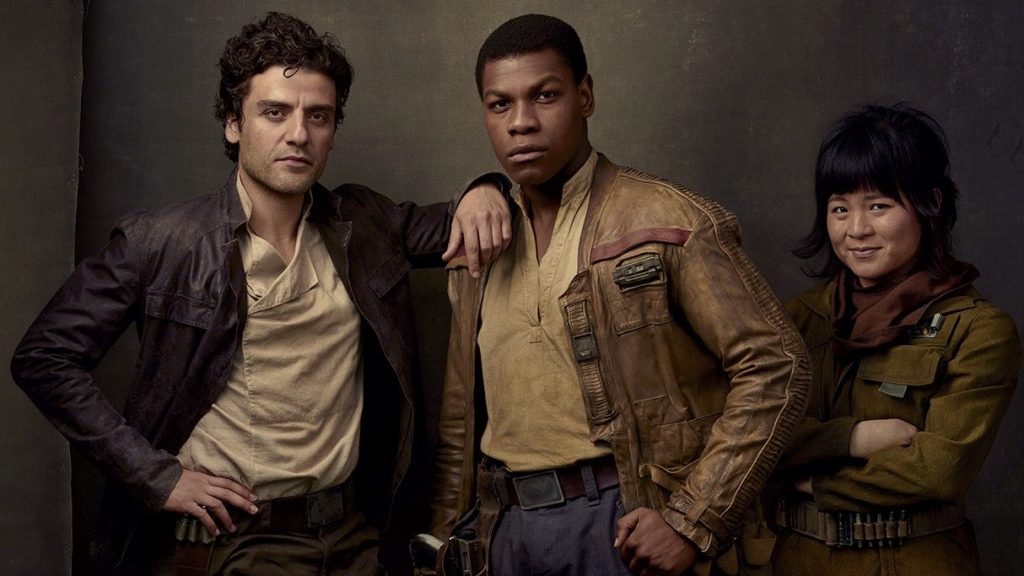
The Force Awakens set up Poe and Finn to be buddies from the start, and it’d only make since to follow up on this strong connection they forged that the audience can already feel. Rose is great in The Last Jedi, and while her reasons to accompany Finn make sense, I feel like that entire subplot should’ve been reworked; Rose’s inclusion seems to be made out of an unfounded necessity when she takes time away that should’ve been spent building other characters.
Now that The Last Jedi’s here, it’s easy to see why many naysayers might be finding great pleasure in this movie’s subversive angle that others hate. Could it be that this love stems from spite, motivating satirical, critical parallels between The Last Jedi and The Empire Strikes Back that don’t hold water? Are people who love the movie cutting themselves off from legitimate criticism by throwing out red herrings? Are they unfairly labeling any fault-finding as dishonest nitpicking coming from diehard fans?
Yes. I’m seeing a lot of that.
Is the other side blindly deriding The Last Jedi’s wonders and magic by getting caught up too much in some of its debatable direction and elements? Are they overreacting and stupidly casting the film’s defenders as shallow fans who don’t understand what Star Wars is even about?
Sure. I think that petition is proof enough.
I wanted—I had to go see The Last Jedi again with a perspective that wouldn’t be as blindsided or wild as my first viewing. I thought for sure I’d be more bored this time since I noticed the film’s flaws with a clearer, more determined vision. I nodded to myself upon affirming my disdain for some of the film’s lopsided writing (Rose tells Finn, “That’s how we’re going to win. Not fighting what we hate. Saving what we love.” . . . excuse me?). I still think the film’s subversion is mostly responsible for its glaring faults in an attempt to be different.
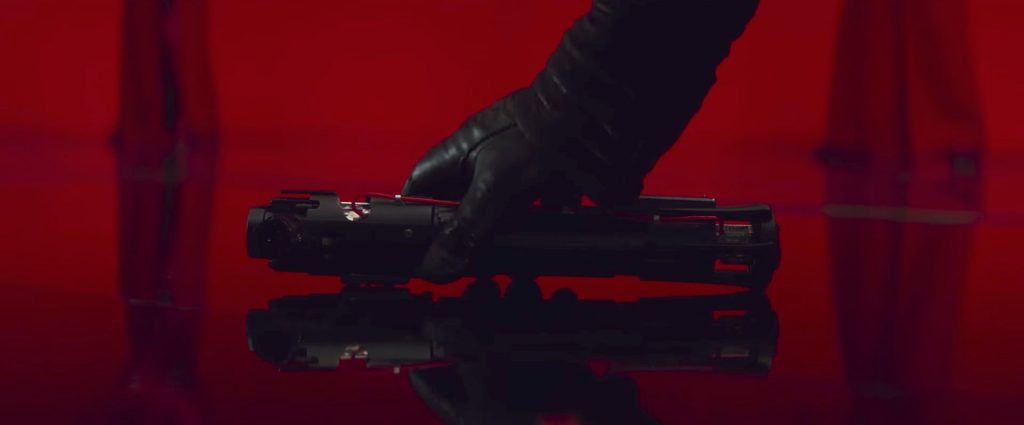
I still don’t buy how Snoke wouldn’t sense Kylo using The Force to direct Rey’s lightsaber, but it’s nevertheless a clever scene that I love the spirit of. The fact that such a powerful Force user thought he could sense the direction of Kylo’s intention was wonderfully ironic.
But I’d be wrong in saying I walked away from the film without enjoying it again. In fact, I’m convinced I liked it a bit more. Kylo’s character development and Luke fighting with his legacy and failings are supremely compelling. I was able to get over and better appreciate the initially jarring moment of Leia flying through space. I think Snoke’s death does more good than harm for Kylo’s future direction in Episode IX.
I know I shouldn’t like The Last Jedi as much as I do, but I can’t bring myself to dislike it more. There’s a fascinating incongruity between how the film works logically upon reflection and how it feels emotionally to watch in the moment. There have been few times where I could use this saying, but the film truly is more than the sum of its parts. I think many would do well to watch it again with an open mind not only to recognize where it shines, but also where it falters.
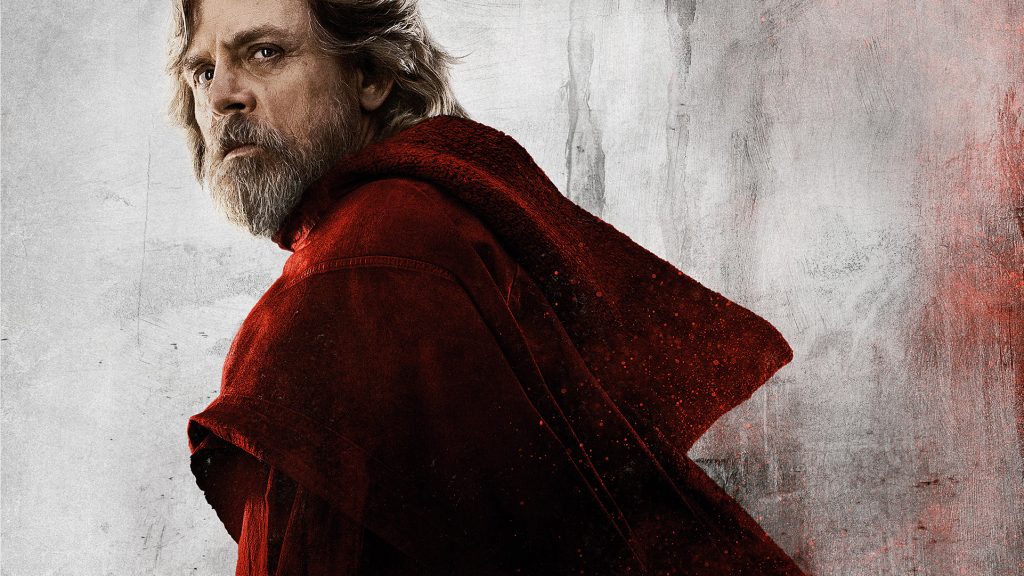
Seeing Luke toss aside his father’s lightsaber, chug down alien boob milk, throw shade at Obi-Wan, and not be moved to come back due to Leia’s predicament and Han’s death . . . my fervent passion as a lifelong Star Wars fan made me want to scream out, “Sacrilege!” in the theater. However, I knew that inner passion was dangerous in shutting out what was done wonderfully with Luke. Even though I still have misgivings of the depths Luke fell to, I was all behind his moment of temptation to the Dark Side with killing his nephew since he knew what happened with Obi-Wan and Anakin. That is definitely consistent with his character in light of his Dark Side tendencies in Return of the Jedi.
In The Clone Wars television series, there’s a particular episodic arc where Anakin meets three ancient Force wielders called The Ones. They’re almost like deities, even having ambiguously religious names. The Son represents the Dark Side, the Daughter represents the Light Side, and the Father keeps them in check. When Anakin asks why they led him here, the Father replies, “There are some who would like to exploit our power. The Sith are but one. Too much light or dark would be the undoing of life as you understand it.”
In a similar sense, the same outlook applies to The Last Jedi’s reception. Falling too far to either side results in these heated debates where people refuse to understand the film’s own internal balance of pros and cons. While others in the saga are universally regarded with more (the originals) or less (the prequels) positives with good reason, we’ve seen the same imbalance over and over again. The original trilogy has issues that are often glossed over with shallow explanations and retcons. The prequel trilogy contain some wonderful elements (most notably in Revenge of the Sith) that get drowned out by all the rightful criticism directed at them.
What I’m not implying is a balanced perspective that’s indifferent or neutral to everything, but one where we should consider all angles and approach every thing on its own merit with as few expectations and prejudices as possible. And when that part’s over, we’re to do the same when our opinions don’t align with our peers’ viewpoints. Most importantly, this kind of outlook allows you to be critical but to also let loose and enjoy yourself. I write about videogames. . . I’m used to seeing gamers do nothing but complain and find fault with games’ problems. God forbid that someone enjoy one that most people didn’t like. So instead of insulting each other for outlooks on mere movies, games, or music, why not come to respectful disagreements or, better yet, change each other’s minds with civil, convincing arguments that give either party a deeper understanding of what they enjoy or disliked and why?
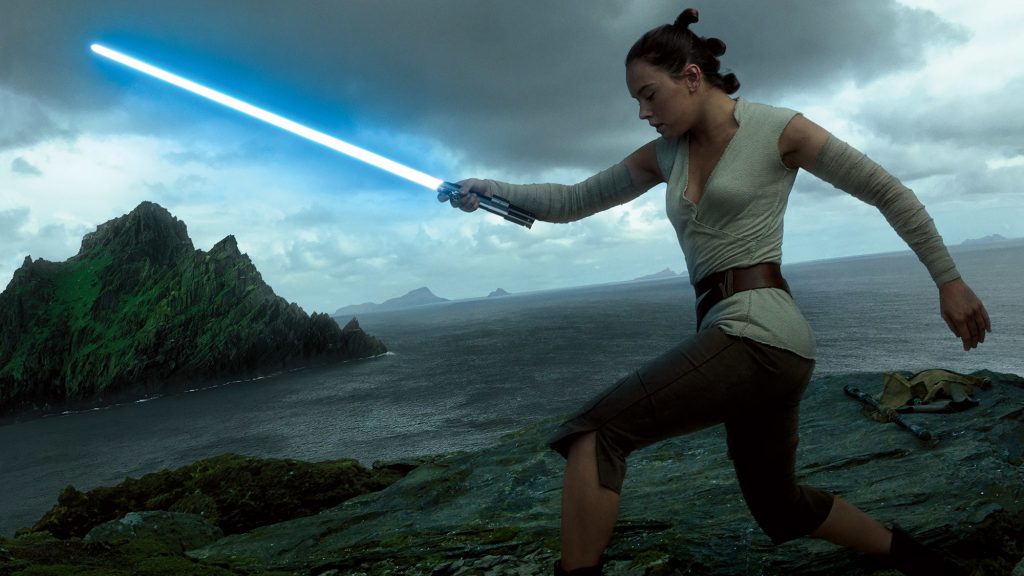
Luke’s cynicism toward the Jedi didn’t allow him to see the good in between all the bad. When Kylo adopted the same perspective by wanting to end it all, you realize that Luke was on a passive version of that path. Rey was willing to learn about the Jedi’s problematic history and still believed in their core and cause. She’s a model for my outlook toward The Last Jedi: I see all its failings as they are, but I don’t sugarcoat or blow them out of proportion. There’s much to marvel at that often exerts an inexplicable pull.
The Last Jedi is one of those rare movies that not only prompts you to promote balance in your approach to it, but one that happens to be all about the subject. If there’s one thing that Rian Johnson has accomplished here, it’s that he’s crafted a Star Wars movie that will generate conversation like never before. The light and the dark? Bring them together. Here’s to balance.

